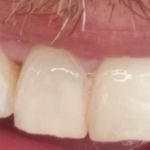Understanding Periodontitis: Causes, Symptoms, and Treatment Options
- What is Periodontitis?
- Causes of Periodontitis
- Symptoms of Periodontitis
- Treatment Options for Periodontitis
- Preventing Periodontitis
- Real-Life Experiences with Periodontitis
What is Periodontitis?
Periodontitis, often referred to as gum disease, is a severe infection of the gums that damages the soft tissue and destroys the bone that supports your teeth. It is one of the leading causes of tooth loss in adults. The disease starts as gingivitis, a milder form of gum inflammation, but if left untreated, it progresses to periodontitis.
Unlike gingivitis, which is limited to gum inflammation, periodontitis affects the deeper tissues of the gums and can lead to tooth mobility and even tooth loss. Recognizing the signs early and seeking treatment is crucial to managing the condition and preserving your oral health.
Causes of Periodontitis
The primary cause of periodontitis is poor oral hygiene that encourages plaque to form on the teeth. Plaque is a sticky film of bacteria that forms after eating and drinking. If not removed with regular brushing and flossing, plaque can harden into tartar, which can only be removed by a dental professional.
In addition to plaque buildup, other factors contribute to the development of periodontitis, including:
- Smoking: Smoking is one of the most significant risk factors for periodontitis. It weakens the immune system and interferes with the healing process of the gums.
- Genetics: Some individuals are genetically predisposed to developing gum disease, making it harder for them to fight infection.
- Hormonal Changes: Hormonal shifts, such as those that occur during pregnancy or menopause, can make the gums more vulnerable to infection.
- Medications: Certain medications, such as steroids or calcium channel blockers, can affect gum health and contribute to the development of periodontitis.
- Chronic Conditions: Conditions like diabetes can increase the risk of developing gum disease due to their impact on the immune system.
Understanding the causes of periodontitis can help you take the necessary steps to reduce your risk and protect your oral health.
Symptoms of Periodontitis
Periodontitis may not present with noticeable symptoms in the early stages, which is why it is crucial to visit your dentist regularly for check-ups. However, as the disease progresses, the following symptoms may appear:
- Red, swollen gums: Gums may become red and swollen, and they may bleed easily, especially during brushing or flossing.
- Bad breath: Persistent bad breath or a bad taste in the mouth can be a sign of gum disease.
- Receding gums: Gums may pull away from the teeth, exposing more of the tooth or even the root.
- Loose teeth: As the disease progresses, the bone supporting the teeth may be damaged, leading to loose or shifting teeth.
- Pain when chewing: You may experience discomfort when chewing, especially in advanced stages of periodontitis.
If you experience any of these symptoms, it’s essential to consult a dentist as soon as possible to prevent further complications.
Treatment Options for Periodontitis
Treatment for periodontitis depends on the severity of the condition. The goal of treatment is to control the infection, reduce inflammation, and restore the health of your gums and teeth. Common treatments for periodontitis include:
- Scaling and Root Planing: This deep-cleaning procedure removes plaque and tartar from beneath the gum line and smooths the tooth roots to promote gum healing.
- Antibiotics: Your dentist may prescribe antibiotics to help control the bacterial infection causing the disease. These can be in the form of oral medications or topical gels applied directly to the gums.
- Flap Surgery: In more advanced cases, flap surgery may be necessary to access and clean deeper areas of infection, as well as to remove damaged tissue.
- Bone and Tissue Grafts: If the bone or tissue supporting your teeth has been destroyed, a graft may be necessary to help restore it and promote healing.
Following your dentist’s recommendations for treatment and maintaining good oral hygiene is essential for recovering from periodontitis and preventing future outbreaks.
Preventing Periodontitis
Prevention is always better than treatment. While you can’t entirely eliminate the risk of periodontitis, you can significantly reduce the likelihood of developing it by practicing good oral hygiene and adopting healthy lifestyle habits. Here are some preventive tips:
- Brush twice a day: Use fluoride toothpaste and a soft-bristled toothbrush to brush your teeth for at least two minutes.
- Floss daily: Flossing helps remove plaque and food particles from between the teeth and along the gumline.
- Visit your dentist regularly: Routine check-ups and professional cleanings can catch gum disease early and prevent it from progressing.
- Quit smoking: Smoking significantly increases your risk of gum disease. Quitting can improve your gum health.
- Maintain a healthy diet: Eating a balanced diet rich in vitamins and minerals can help keep your gums and teeth strong.
By adopting these preventive measures, you can maintain healthy gums and reduce the risk of developing periodontitis.
Real-Life Experiences with Periodontitis
Many people struggle with periodontitis, but with the right treatment, it’s possible to manage and even reverse the effects of the disease. Take Sarah, for example. In her early 40s, Sarah noticed that her gums were bleeding more frequently, and her breath seemed to be constantly bad. After visiting her dentist, she was diagnosed with periodontitis. Thanks to scaling and root planing, along with a strict oral hygiene regimen, Sarah was able to restore her gum health and avoid tooth loss.
Similarly, Mark, a 55-year-old smoker, had suffered from periodontitis for several years. Despite his efforts to brush and floss regularly, his gum disease had advanced. After undergoing flap surgery and committing to smoking cessation, Mark saw significant improvement in his gum health and has since maintained a healthier smile.
These stories show that with proper care, periodontitis can be managed and prevented from causing long-term damage to your teeth and gums.
Taking care of your gums is just as important as caring for your teeth. If you think you may be experiencing periodontitis or need guidance on maintaining healthy gums, visit Dentistry Toothtruth for expert advice and recommendations. Don't wait—take action to protect your smile today!







 Maui Whitening Orlando4.0 (32 review)
Maui Whitening Orlando4.0 (32 review) Bloomington Southside Dental Care3.0 (26 review)
Bloomington Southside Dental Care3.0 (26 review) Christiana Dental Center4.0 (650 review)
Christiana Dental Center4.0 (650 review) Carolina Dental Arts - New Bern Ave4.0 (152 review)
Carolina Dental Arts - New Bern Ave4.0 (152 review) Equitas Health Short North Medical Center3.0 (96 review)
Equitas Health Short North Medical Center3.0 (96 review) Prosthodontics of Madison - Kendra Schaefer, DMD & Christine Roenitz, DMD4.0 (25 review)
Prosthodontics of Madison - Kendra Schaefer, DMD & Christine Roenitz, DMD4.0 (25 review) The Importance of Oral Health Education During Pregnancy for a Healthy Pregnancy
The Importance of Oral Health Education During Pregnancy for a Healthy Pregnancy Best Tips for Brushing Your Teeth Properly for Healthy Gums: Essential Techniques for Oral Health
Best Tips for Brushing Your Teeth Properly for Healthy Gums: Essential Techniques for Oral Health Why Skipping Dental Checkups Can Lead to Bigger Oral Health Problems
Why Skipping Dental Checkups Can Lead to Bigger Oral Health Problems Advantages of Porcelain Dental Restorations
Advantages of Porcelain Dental Restorations How Can Diabetes Cause Tooth and Gum Problems? Preventing and Managing Oral Health Issues
How Can Diabetes Cause Tooth and Gum Problems? Preventing and Managing Oral Health Issues Healthy Habits for Promoting Good Oral Health and Hygiene: Tips for a Healthy Smile
Healthy Habits for Promoting Good Oral Health and Hygiene: Tips for a Healthy Smile